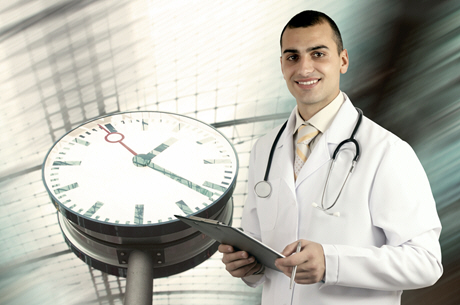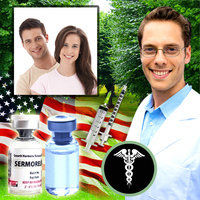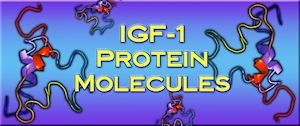Introduction
Secondary hypogonadism, a condition characterized by the inadequate production of testosterone due to dysfunctions in the hypothalamus or pituitary gland, has been increasingly recognized as a significant health concern among American males. Recent studies have begun to explore the broader implications of this hormonal imbalance, particularly its potential role in hair loss and alopecia. This article delves into the findings of a cross-sectional study that examines the relationship between secondary hypogonadism, hormonal levels, and hair health, offering insights into a condition that affects millions of men across the United States.
Understanding Secondary Hypogonadism
Secondary hypogonadism arises when the pituitary gland fails to secrete sufficient gonadotropins, which are essential for stimulating the testes to produce testosterone. This hormonal deficiency can lead to a range of symptoms, including reduced libido, erectile dysfunction, and decreased muscle mass. While these symptoms are well-documented, the connection between secondary hypogonadism and hair loss has garnered less attention until recently.
The Link Between Hormones and Hair Health
Hair growth and maintenance are heavily influenced by hormonal balance, particularly testosterone and its derivatives. Dihydrotestosterone (DHT), a potent form of testosterone, plays a critical role in the hair follicle cycle. Elevated levels of DHT can lead to miniaturization of hair follicles, resulting in the type of hair loss known as androgenetic alopecia, or male pattern baldness. In contrast, low levels of testosterone, as seen in secondary hypogonadism, can also disrupt normal hair growth patterns, leading to thinning and loss of hair.
Study Findings on Secondary Hypogonadism and Hair Loss
The cross-sectional study focused on a cohort of American males aged 18 to 65, assessing their testosterone levels and the prevalence of hair loss. The findings revealed a significant correlation between secondary hypogonadism and increased rates of alopecia. Men with lower testosterone levels were more likely to report hair thinning and baldness, suggesting that hormonal imbalances play a crucial role in hair health.
Moreover, the study highlighted that men with secondary hypogonadism often exhibited higher levels of DHT relative to testosterone, further complicating the hormonal milieu that affects hair follicles. This imbalance underscores the complex interplay between different hormones and their impact on hair growth and loss.
Implications for Treatment and Management
The study's results have significant implications for the treatment and management of hair loss in men with secondary hypogonadism. Traditional treatments for male pattern baldness, such as finasteride, which inhibits the conversion of testosterone to DHT, may need to be reconsidered in the context of secondary hypogonadism. Instead, a more holistic approach that addresses the underlying hormonal imbalance could be more effective.
Hormone replacement therapy (HRT) has been shown to improve testosterone levels and alleviate some symptoms of secondary hypogonadism. However, the impact of HRT on hair loss remains an area of ongoing research. Clinicians may need to tailor treatments to individual patients, considering both their hormonal profiles and hair health needs.
Conclusion
Secondary hypogonadism presents a multifaceted challenge for American males, affecting not only their general health but also their hair. The cross-sectional study discussed in this article sheds light on the intricate relationship between hormonal imbalances and hair loss, emphasizing the need for a comprehensive approach to diagnosis and treatment. As research continues to evolve, it is crucial for both patients and healthcare providers to stay informed about the latest findings and treatment options, ensuring that men with secondary hypogonadism receive the care they need to maintain both their overall health and hair health.
Contact Us For A Fast And Professional Response

- Secondary Hypogonadism: Cardiovascular Risks and Management Strategies for American Men [Last Updated On: March 5th, 2025] [Originally Added On: March 5th, 2025]
- Secondary Hypogonadism and Sleep: Impacts and Management Strategies for American Men [Last Updated On: March 17th, 2025] [Originally Added On: March 17th, 2025]
- Secondary Hypogonadism and Energy: Impact and Management in American Males [Last Updated On: March 18th, 2025] [Originally Added On: March 18th, 2025]
- Genetic Factors in Secondary Hypogonadism: Impact and Implications for American Males [Last Updated On: March 19th, 2025] [Originally Added On: March 19th, 2025]
- Secondary Hypogonadism in American Men: Symptoms, Risks, and Management Strategies [Last Updated On: March 19th, 2025] [Originally Added On: March 19th, 2025]
- Chronic Stress and Secondary Hypogonadism in American Males: A Comprehensive Overview [Last Updated On: March 20th, 2025] [Originally Added On: March 20th, 2025]
- Secondary Hypogonadism: Impacts on Body Composition in American Men [Last Updated On: March 20th, 2025] [Originally Added On: March 20th, 2025]
- Secondary Hypogonadism's Impact on Prostate Health: Management and Monitoring Strategies [Last Updated On: March 20th, 2025] [Originally Added On: March 20th, 2025]
- Secondary Hypogonadism: Impact on Cognitive Health and Management Strategies [Last Updated On: March 20th, 2025] [Originally Added On: March 20th, 2025]
- Exercise as a Key Strategy in Managing Secondary Hypogonadism in American Males [Last Updated On: March 21st, 2025] [Originally Added On: March 21st, 2025]
- Managing Secondary Hypogonadism: The Vital Role of Comprehensive Support Systems [Last Updated On: March 21st, 2025] [Originally Added On: March 21st, 2025]
- Psychological Impacts of Secondary Hypogonadism: Mood, Self-Esteem, and Cognitive Effects [Last Updated On: March 22nd, 2025] [Originally Added On: March 22nd, 2025]
- Secondary Hypogonadism in American Males: Impacts and Management of Hair Loss [Last Updated On: March 22nd, 2025] [Originally Added On: March 22nd, 2025]
- Environmental Factors and Preventive Measures for Secondary Hypogonadism in American Men [Last Updated On: March 22nd, 2025] [Originally Added On: March 22nd, 2025]
- Secondary Hypogonadism in American Males: Causes, Symptoms, and Management Strategies [Last Updated On: March 22nd, 2025] [Originally Added On: March 22nd, 2025]
- Secondary Hypogonadism: Impacts on Skin Health and Treatment Options in American Men [Last Updated On: March 23rd, 2025] [Originally Added On: March 23rd, 2025]
- Secondary Hypogonadism in American Males: Symptoms, Diagnosis, and Management Strategies [Last Updated On: March 23rd, 2025] [Originally Added On: March 23rd, 2025]
- Secondary Hypogonadism: Impact on Physical Performance in American Men [Last Updated On: March 23rd, 2025] [Originally Added On: March 23rd, 2025]
- Secondary Hypogonadism and Anemia: Understanding the Link and Managing Health [Last Updated On: March 24th, 2025] [Originally Added On: March 24th, 2025]
- Secondary Hypogonadism and Mood Disorders: Exploring Links and Treatment in American Men [Last Updated On: March 24th, 2025] [Originally Added On: March 24th, 2025]
- Secondary Hypogonadism in American Males: Impact and Importance of Mental Health Support [Last Updated On: March 24th, 2025] [Originally Added On: March 24th, 2025]
- Secondary Hypogonadism in American Men: Symptoms, Diagnosis, and Management Strategies [Last Updated On: March 24th, 2025] [Originally Added On: March 24th, 2025]
- Secondary Hypogonadism and Heart Disease: Risks, Symptoms, and Management in American Males [Last Updated On: March 24th, 2025] [Originally Added On: March 24th, 2025]
- Lifestyle Impact on Secondary Hypogonadism in American Males: Prevention and Management [Last Updated On: March 25th, 2025] [Originally Added On: March 25th, 2025]
- Secondary Hypogonadism: Understanding Its Profound Social Impact on American Men [Last Updated On: March 25th, 2025] [Originally Added On: March 25th, 2025]
- Secondary Hypogonadism: Impact on Libido and Treatment Options for American Males [Last Updated On: March 25th, 2025] [Originally Added On: March 25th, 2025]
- Secondary Hypogonadism and Diabetes: Insights and Management for American Men [Last Updated On: March 25th, 2025] [Originally Added On: March 25th, 2025]
- Secondary Hypogonadism: Impacts on Kidney Function and Management Strategies for American Males [Last Updated On: March 25th, 2025] [Originally Added On: March 25th, 2025]
- Sleep Disorders and Secondary Hypogonadism: Mechanisms, Impacts, and Management in American Men [Last Updated On: March 25th, 2025] [Originally Added On: March 25th, 2025]
- Secondary Hypogonadism's Impact on Muscle Strength in American Men: Diagnosis and Treatment [Last Updated On: March 25th, 2025] [Originally Added On: March 25th, 2025]
- Managing Secondary Hypogonadism: Symptoms, Diagnosis, and Treatment Strategies for American Males [Last Updated On: March 25th, 2025] [Originally Added On: March 25th, 2025]
- Exploring Alternatives to TRT for Secondary Hypogonadism Management [Last Updated On: March 25th, 2025] [Originally Added On: March 25th, 2025]
- Secondary Hypogonadism's Impact on Immune Function in American Men [Last Updated On: March 25th, 2025] [Originally Added On: March 25th, 2025]
- Emotional Impact of Secondary Hypogonadism on American Men: Symptoms and Solutions [Last Updated On: March 26th, 2025] [Originally Added On: March 26th, 2025]
- Understanding and Managing Secondary Hypogonadism in American Males [Last Updated On: March 26th, 2025] [Originally Added On: March 26th, 2025]
- Secondary Hypogonadism: Impacts and Management in American Men [Last Updated On: March 26th, 2025] [Originally Added On: March 26th, 2025]
- Exercise as a Key Strategy in Managing Secondary Hypogonadism in American Men [Last Updated On: March 26th, 2025] [Originally Added On: March 26th, 2025]
- Secondary Hypogonadism's Impact on Fat Distribution in American Men [Last Updated On: March 26th, 2025] [Originally Added On: March 26th, 2025]
- Understanding and Managing Secondary Hypogonadism in American Males: A Comprehensive Guide [Last Updated On: March 26th, 2025] [Originally Added On: March 26th, 2025]
- Secondary Hypogonadism's Impact on Bone Density in American Men: Causes, Effects, and Management [Last Updated On: March 26th, 2025] [Originally Added On: March 26th, 2025]
- Secondary Hypogonadism and Autoimmune Diseases: Insights and Implications for American Men [Last Updated On: March 26th, 2025] [Originally Added On: March 26th, 2025]
- Secondary Hypogonadism: Impacts and Management Strategies for American Men [Last Updated On: March 26th, 2025] [Originally Added On: March 26th, 2025]
- Secondary Hypogonadism's Impact on Liver Health in American Males [Last Updated On: March 27th, 2025] [Originally Added On: March 27th, 2025]
- Thyroid Function's Role in Secondary Hypogonadism Among American Males: Insights and Management [Last Updated On: March 27th, 2025] [Originally Added On: March 27th, 2025]
- Nutrition's Role in Managing Secondary Hypogonadism in American Males [Last Updated On: March 28th, 2025] [Originally Added On: March 28th, 2025]
- Secondary Hypogonadism: Causes, Symptoms, and Treatment for American Males [Last Updated On: March 28th, 2025] [Originally Added On: March 28th, 2025]
- Managing Fatigue in American Males with Secondary Hypogonadism: A Comprehensive Approach [Last Updated On: March 29th, 2025] [Originally Added On: March 29th, 2025]
- Secondary Hypogonadism's Impact on Mood in American Men: Causes, Effects, and Management [Last Updated On: March 29th, 2025] [Originally Added On: March 29th, 2025]
- Secondary Hypogonadism's Impact on Cognitive Function in American Men: A Review [Last Updated On: March 29th, 2025] [Originally Added On: March 29th, 2025]
- Secondary Hypogonadism's Psychological Impact on American Men: Diagnosis, Treatment, and Support [Last Updated On: March 29th, 2025] [Originally Added On: March 29th, 2025]
- Secondary Hypogonadism in American Males: Causes, Diagnosis, and Management Strategies [Last Updated On: March 30th, 2025] [Originally Added On: March 30th, 2025]
- Chronic Stress and Secondary Hypogonadism: Management Strategies for American Males [Last Updated On: March 30th, 2025] [Originally Added On: March 30th, 2025]
- Secondary Hypogonadism: Impact on Energy, Vitality, and Quality of Life in American Men [Last Updated On: April 1st, 2025] [Originally Added On: April 1st, 2025]
- Secondary Hypogonadism in American Males: Weight Management and Holistic Health Strategies [Last Updated On: April 1st, 2025] [Originally Added On: April 1st, 2025]
- Secondary Hypogonadism in American Males: Causes, Diagnosis, and Hormonal Therapy [Last Updated On: April 3rd, 2025] [Originally Added On: April 3rd, 2025]
- Managing Secondary Hypogonadism: Diet's Role in Boosting Testosterone for American Men [Last Updated On: April 5th, 2025] [Originally Added On: April 5th, 2025]
- Secondary Hypogonadism: Impacts on Intimate Relationships and Management Strategies [Last Updated On: April 5th, 2025] [Originally Added On: April 5th, 2025]
- Secondary Hypogonadism: Symptoms, Diagnosis, and Treatment for American Males [Last Updated On: April 5th, 2025] [Originally Added On: April 5th, 2025]
- Secondary Hypogonadism: Holistic Treatment for Improved Health in American Males [Last Updated On: April 7th, 2025] [Originally Added On: April 7th, 2025]
- Understanding Secondary Hypogonadism: Symptoms, Diagnosis, and Management in American Males [Last Updated On: April 8th, 2025] [Originally Added On: April 8th, 2025]
- Community Support Enhances Life for Men with Secondary Hypogonadism [Last Updated On: April 8th, 2025] [Originally Added On: April 8th, 2025]
- Sleep Deprivation and Secondary Hypogonadism in American Males: A Critical Connection [Last Updated On: April 9th, 2025] [Originally Added On: April 9th, 2025]
- Secondary Hypogonadism's Impact on Mental Clarity in American Men [Last Updated On: April 9th, 2025] [Originally Added On: April 9th, 2025]
- Secondary Hypogonadism: Symptoms, Impacts, and Management Strategies for American Men [Last Updated On: April 11th, 2025] [Originally Added On: April 11th, 2025]
- Secondary Hypogonadism's Impact on Emotional Resilience in American Men [Last Updated On: April 12th, 2025] [Originally Added On: April 12th, 2025]
- Secondary Hypogonadism: Impacts on Mental Health and Comprehensive Care for American Males [Last Updated On: April 13th, 2025] [Originally Added On: April 13th, 2025]
- Understanding and Managing Secondary Hypogonadism in American Men: Symptoms, Causes, and Treatments [Last Updated On: April 13th, 2025] [Originally Added On: April 13th, 2025]
- Secondary Hypogonadism in American Males: Diagnosis, Treatment, and Multidisciplinary Care [Last Updated On: April 14th, 2025] [Originally Added On: April 14th, 2025]
- Secondary Hypogonadism: Impacts and Management Strategies for American Men's Vitality [Last Updated On: April 16th, 2025] [Originally Added On: April 16th, 2025]
- Secondary Hypogonadism in American Males: Symptoms, Causes, and Management Strategies [Last Updated On: April 16th, 2025] [Originally Added On: April 16th, 2025]
- Secondary Hypogonadism: Importance of Regular Check-ups for American Males' Health [Last Updated On: April 16th, 2025] [Originally Added On: April 16th, 2025]
- Understanding and Managing Secondary Hypogonadism in American Males: Causes, Symptoms, and Treatments [Last Updated On: April 16th, 2025] [Originally Added On: April 16th, 2025]
- Secondary Hypogonadism: Understanding Its Impact on Men's Self-Esteem in America [Last Updated On: April 16th, 2025] [Originally Added On: April 16th, 2025]
- Nutrition's Role in Managing Secondary Hypogonadism: A Comprehensive Guide [Last Updated On: April 17th, 2025] [Originally Added On: April 17th, 2025]
- Secondary Hypogonadism: Impacts on Health and Importance of Early Intervention in American Men [Last Updated On: April 17th, 2025] [Originally Added On: April 17th, 2025]
- Secondary Hypogonadism: Emotional Impact and Management Strategies for American Men [Last Updated On: April 18th, 2025] [Originally Added On: April 18th, 2025]
- Understanding Secondary Hypogonadism: Symptoms, Causes, and Treatment in American Males [Last Updated On: April 19th, 2025] [Originally Added On: April 19th, 2025]
- Managing Secondary Hypogonadism: Lifestyle Strategies for American Males [Last Updated On: April 19th, 2025] [Originally Added On: April 19th, 2025]
- Secondary Hypogonadism: Symptoms, Diagnosis, and Management Strategies for American Men [Last Updated On: April 22nd, 2025] [Originally Added On: April 22nd, 2025]
- Secondary Hypogonadism: Causes, Symptoms, and Management Strategies for American Men [Last Updated On: April 22nd, 2025] [Originally Added On: April 22nd, 2025]
















